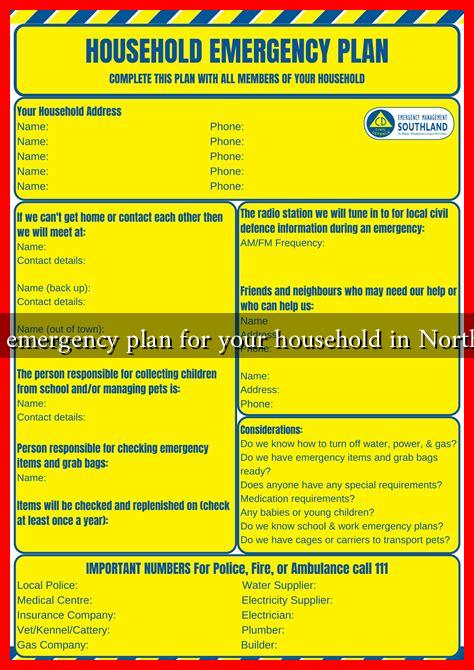-
Table of Contents
- How to Create an Emergency Plan for Your Household in Northeast Ohio Today
- Understanding the Risks in Northeast Ohio
- Steps to Create Your Emergency Plan
- 1. Assemble Your Emergency Kit
- 2. Develop a Communication Plan
- 3. Create an Evacuation Plan
- 4. Stay Informed
- Case Study: The 2019 Tornado Outbreak
- Conclusion
How to Create an Emergency Plan for Your Household in Northeast Ohio Today
In Northeast Ohio, the unpredictability of weather patterns, coupled with the potential for natural disasters, makes it essential for households to have a well-structured emergency plan.
. Whether it’s severe thunderstorms, tornadoes, or winter storms, being prepared can make a significant difference in ensuring the safety of your family. This article will guide you through the steps to create an effective emergency plan tailored to the unique challenges of the region.
Understanding the Risks in Northeast Ohio
Before creating an emergency plan, it’s crucial to understand the specific risks your household may face. Northeast Ohio is prone to various natural disasters, including:
- Tornadoes: The region experiences an average of 15 tornadoes annually, particularly during the spring and summer months.
- Severe Thunderstorms: These storms can lead to flash flooding, hail, and damaging winds.
- Winter Storms: Heavy snowfall and ice storms can disrupt power and transportation.
- Flooding: Areas near rivers and lakes are susceptible to flooding, especially during heavy rainfall.
Understanding these risks will help you tailor your emergency plan to address the specific threats your household may encounter.
Steps to Create Your Emergency Plan
Creating an emergency plan involves several key steps:
1. Assemble Your Emergency Kit
Your emergency kit should contain essential supplies to sustain your family for at least 72 hours. Consider including:
- Water (one gallon per person per day)
- Non-perishable food items
- First aid supplies
- Flashlights and extra batteries
- Whistle to signal for help
- Multi-tool or Swiss Army knife
- Local maps
- Personal hygiene items
- Important documents (insurance policies, identification)
2. Develop a Communication Plan
In the event of an emergency, it’s vital to have a communication strategy. Here’s how to set one up:
- Identify a family meeting place outside your home.
- Choose an out-of-state contact person who can relay information.
- Ensure all family members have a list of emergency contacts saved in their phones.
3. Create an Evacuation Plan
Know your evacuation routes and have a plan for where to go. Consider the following:
- Identify multiple routes to your chosen destination.
- Practice the evacuation plan with your family.
- Keep your vehicle fueled and ready for emergencies.
4. Stay Informed
Staying updated on weather conditions and emergency alerts is crucial. Utilize resources such as:
- The National Weather Service for real-time alerts.
- Local news stations for updates on severe weather.
- Apps like FEMA and Ready.gov for preparedness tips.
Case Study: The 2019 Tornado Outbreak
The tornado outbreak in May 2019 serves as a stark reminder of the importance of preparedness. In Northeast Ohio, several communities were affected, leading to widespread damage and power outages. Many families who had emergency plans in place were able to respond quickly, ensuring their safety and minimizing loss. This incident highlighted the need for every household to have a robust emergency plan.
Conclusion
Creating an emergency plan for your household in Northeast Ohio is not just a precaution; it’s a necessity. By understanding the risks, assembling an emergency kit, developing a communication and evacuation plan, and staying informed, you can significantly enhance your family’s safety during emergencies. Remember, preparedness is a continuous process—regularly review and update your plan to ensure it meets your family’s needs. For more information on emergency preparedness, visit Ready.gov.
In summary, taking the time to create a comprehensive emergency plan can save lives and provide peace of mind. Don’t wait for disaster to strike; start planning today!





